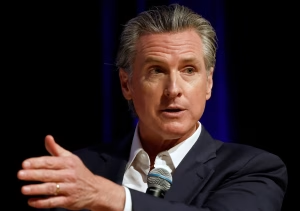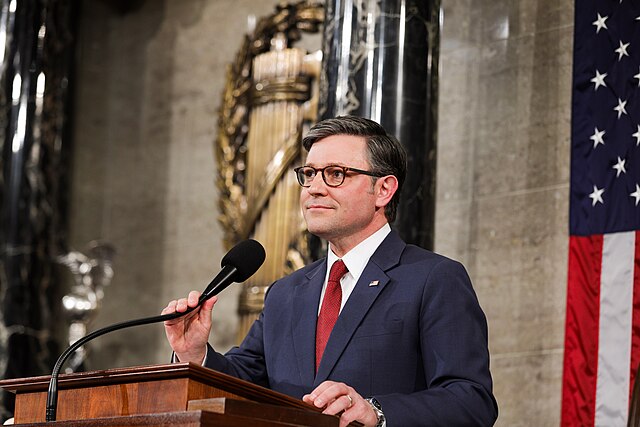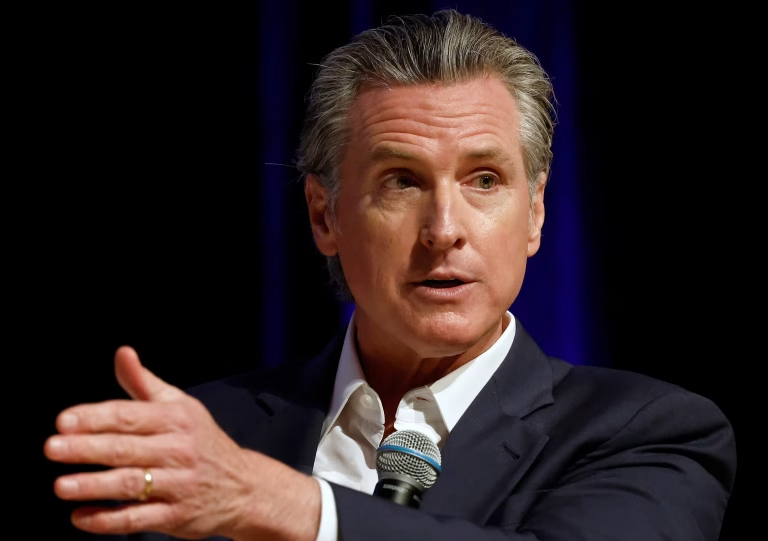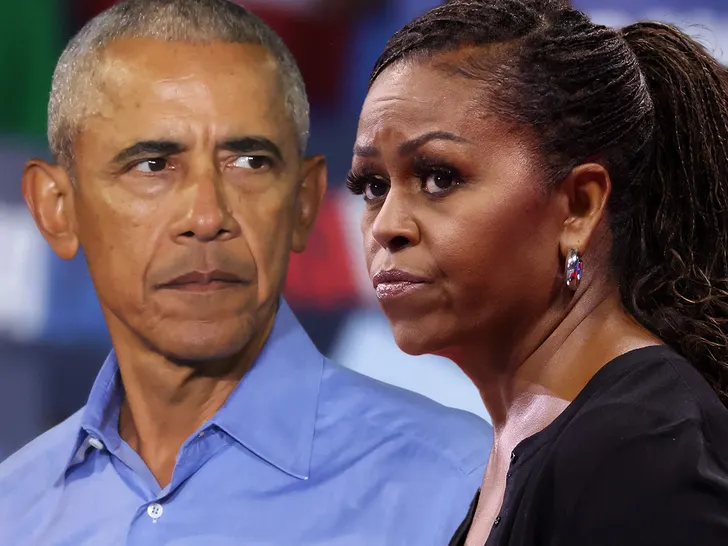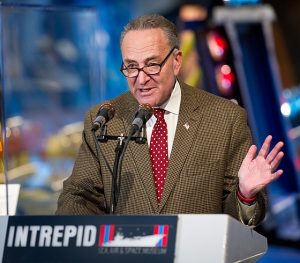Capitol Showdown Escalates as Sharp Words Fly During Ongoing Shutdown
As the federal government shutdown enters its fourth week, frustration on Capitol Hill reached a boiling point on Friday when House Minority Leader Hakeem Jeffries (D-NY) sharply criticized Karoline Leavitt, the White House Press Secretary for President Donald Trump.
During an impromptu press exchange, Jeffries accused Leavitt of spreading “misinformation” and launched a series of pointed personal attacks that immediately drew national attention.
“You’ve got Karoline Leavitt, who’s sick. She’s out of control,” Jeffries said, according to Fox News. “And I’m not sure whether she’s just demented, ignorant, a stone-cold liar, or all of the above.”
The remarks marked one of the most direct and personal confrontations between a senior Democratic leader and a member of the Trump administration in recent months — underscoring just how deep the partisan divisions have grown as the shutdown drags on.
The Context: A Shutdown with No End in Sight
The government shutdown, now stretching into its fourth week, stems from a funding standoff between the Republican-controlled House and the Democratic-led Senate.
At the center of the impasse is a disagreement over federal spending priorities for the 2026 fiscal year. Republicans proposed a continuing resolution that would maintain existing funding levels through November, buying time for broader negotiations on a long-term budget deal.
Democrats rejected the plan, demanding additional health-care subsidies, pandemic-era funding extensions, and several policy provisions tied to social spending. Without an agreement, thousands of federal workers remain furloughed, and vital services continue to experience disruptions.
Tensions in Washington have steadily climbed, with both sides blaming the other for the stalemate — and with political rhetoric growing increasingly personal.
Jeffries’ Remarks Set Off a Firestorm
Jeffries’ unusually harsh comments appeared to be a response to earlier remarks by Leavitt, who had criticized the Democratic Party in strikingly blunt terms.
In a statement to reporters earlier in the day, Leavitt accused Democrats of aligning with “terrorists, violent criminals, and undocumented immigrants,” calling them “a party of chaos.”
Her language drew immediate pushback from Democratic lawmakers, who accused the Trump administration of attempting to inflame tensions during a national crisis.
“The notion that an official White House spokesperson would say that the Democratic Party consists of terrorists, violent criminals, and undocumented immigrants makes no sense,” Jeffries said in his rebuttal. “This is what the American people are getting from the Trump administration in the middle of a shutdown.”
The exchange quickly went viral, with clips of Jeffries’ comments circulating widely on social media and sparking debate about the tone of modern political communication.
Leavitt Fires Back
Within hours, Leavitt hit back with a fiery statement of her own on X, the platform formerly known as Twitter.
“Hakeem Jeffries and the Democrats are lashing out because they know what I said is true,” she wrote. “The Democrat Party’s elected officials absolutely cater to pro-Hamas terrorists, illegal aliens, and violent criminals.”
She went on to accuse Democrats of failing to protect U.S. borders and supporting policies that she claimed “put Americans at risk.”
“Democrats opened our borders and allowed tens of millions of illegal aliens into our country over the past four years, including rapists and murderers, because they view them as future voters,” Leavitt continued. “Democrats coddle violent criminals and support soft-on-crime policies like cashless bail that let violent offenders back on the streets.”
Her post concluded with a personal jab at Jeffries himself:
“Democrats do NOT serve the interests of the American people. Hakeem Jeffries is an America Last, stone-cold loser. Now open up the government and stop simping to try to get your radical left-wing base to like you.”
Later that evening, Leavitt joined Fox News host Sean Hannity to elaborate on her comments, saying that she was “standing up for the truth” and “refusing to let Democrats rewrite reality.”
Why Jeffries May Have Reacted
While Jeffries did not provide further clarification on his remarks, reporters noted that the exchange came moments after he was questioned about another controversy — a swastika reportedly discovered on an American flag displayed inside the office of Rep. Dave Taylor (R-OH).
Jeffries was asked whether Republican leadership had addressed the incident, prompting him to pivot toward broader criticisms of what he described as “toxic rhetoric” from the Trump administration.
The issue involving Taylor’s office remains under investigation. Taylor said in a statement that multiple GOP offices were targeted in what appeared to be a coordinated act of vandalism.
“New details have emerged from a coordinated investigation into the vile symbol that appeared in my office,” Taylor said. “Numerous Republican offices have confirmed that they were targeted by an unidentified group or individual who distributed American flags bearing a similar symbol.”
He added that the flag was removed “immediately upon discovery” and emphasized that “no employee of this office would knowingly display such a despicable image.”
The timing of Jeffries’ comments, occurring just after questions about extremism and symbolism in Congress, may help explain his heightened frustration and emotional tone.
An Escalation in Partisan Rhetoric
The public feud between Jeffries and Leavitt highlights a growing trend in American politics: the personalization of institutional disputes.
Rather than focusing solely on policy, lawmakers and officials are increasingly targeting one another personally — a shift that analysts say reflects both polarization and the pressure of 24-hour media coverage.
Political communication expert Kathleen Hall Jamieson, director of the Annenberg Public Policy Center, noted that “rhetoric once considered beyond the pale is now normalized in daily political discourse.”
“Both parties have embraced a combative style that rewards outrage and personal attacks,” Jamieson said. “The danger is that it undermines public trust and makes it harder to find consensus on serious issues — like funding the government.”
Indeed, the shutdown has paralyzed federal operations while leaving millions of Americans uncertain about paychecks, benefits, and services. Yet, much of the public conversation has shifted toward political theater.
Responses from Both Sides
Democrats defended Jeffries, arguing that his remarks were justified given Leavitt’s provocative statements.
Rep. Jim McGovern (D-MA) said Leavitt’s language was “beyond inappropriate” and accused the Trump administration of trying to “distract from its own failures to govern.”
Republicans, however, rallied behind Leavitt. Rep. Lauren Boebert (R-CO) said Jeffries’ comments showed “the true face of Democratic intolerance,” calling the Minority Leader’s remarks “an attack on a young woman just doing her job.”
Political allies of Trump framed the confrontation as evidence that Democrats are losing patience under mounting political pressure.
“This administration is exposing the truth, and Democrats can’t handle it,” said Rep. Byron Donalds (R-FL). “The more they lash out, the more obvious that becomes.”
Shutdown Enters Week Four: What’s Next?
Behind the rhetoric, the shutdown continues to take a toll on ordinary Americans. Federal employees across the country have gone weeks without pay. National parks, museums, and passport offices remain shuttered.
Economists warn that if the stalemate continues much longer, it could begin to drag on the broader U.S. economy, particularly in areas dependent on federal contracts and tourism.
Negotiations are ongoing but have produced little visible progress. Senate Democrats insist on additional healthcare and social spending provisions, while House Republicans refuse to consider any bill that increases the deficit.
As both sides dig in, analysts say the longer the shutdown lasts, the more politically costly it could become — not only for lawmakers but also for the public’s perception of government competence.
The Bigger Picture
Friday’s verbal clash between Hakeem Jeffries and Karoline Leavitt may have been sparked by a single comment, but it encapsulates a deeper problem in Washington: a political culture defined more by confrontation than collaboration.
Both sides claim to represent “the truth,” yet the result is a steady escalation of hostility that makes compromise ever more elusive.
As one senior congressional aide put it, “This isn’t just about funding levels anymore — it’s about who gets the last word.”
Whether the nation’s leaders can step back from the brink and refocus on reopening the government remains to be seen. But one thing is certain: with tempers this high, even routine disagreements risk turning into public brawls.

Sarah Mitchell is a bestselling novelist recognized for her insightful and emotionally resonant stories that explore the complexities of human relationships. Originally from Denver, Colorado, Sarah grew up in a family of teachers who nurtured her curiosity and love for storytelling. She studied psychology at Stanford University, where she became fascinated by the intricacies of human behavior—an interest that would later shape her writing career. Sarah’s novels are praised for their nuanced characters, intricate plots, and ability to capture the subtle tensions that define love, friendship, and family ties. Her breakthrough novel, The Spaces Between Us, became an instant bestseller, lauded for its honest portrayal of strained family relationships and the fragile bonds that hold people together. Since then, she has published several works that continue to captivate audiences around the world. Outside of her writing career, Sarah is passionate about mental health advocacy and often partners with organizations to promote awareness and support for those struggling with emotional well-being. Her personal life is quieter—she enjoys hiking in the Colorado mountains, practicing yoga, and spending time with close friends. With each new book, Sarah Mitchell cements her reputation as a writer who illuminates the beauty and struggles of human connection.

